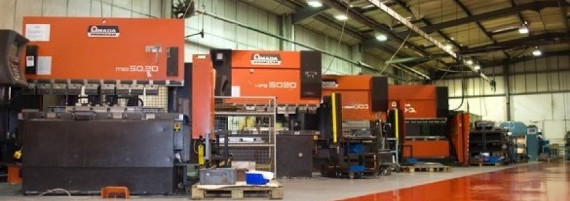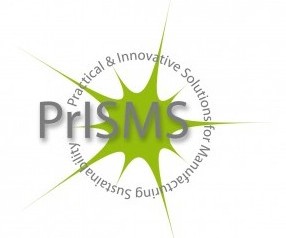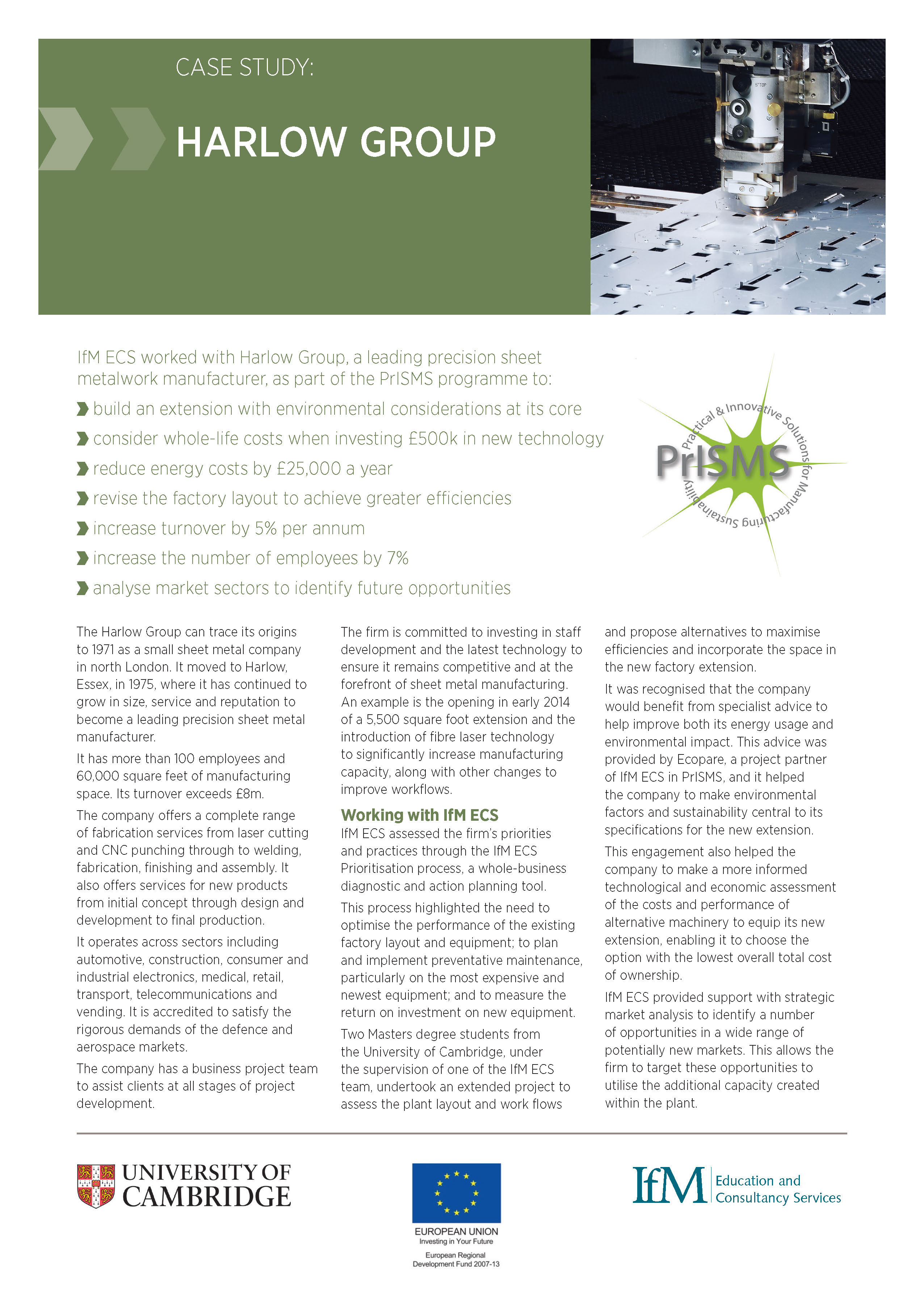Harlow Group: sustainability at the heart of expansion for precision metal manufacturer

Harlow Group is one of more than 100 smaller manufacturers that IfM ECS is working with as part of the PrISMS programme – and this case study highlights the difference it has made. It is a leading precision sheet metal manufacturer offering a complete range of fabrication services from laser cutting and CNC punching through to welding, fabrication, finishing and assembly. It operates across sectors including automotive, construction, electronics, medical, retail, transport and telecommunications.
IfM ECS worked with Harlow Group as part of the PrISMS programme to:
|
build an extension with environmental considerations at its core |
|
|
consider whole-life costs when investing £500k in new technology |
|
|
reduce energy costs by £25,000 a year |
|
|
revise the factory layout to achieve greater efficiencies |
|
|
increase turnover by 5% per annum |
|
|
increase the number of employees by 7% |
|
|
analyse market sectors to identify future opportunities. |
The Harlow Group can trace its origins to 1971 as a small sheet metal company in north London. It moved to Harlow, Essex, in 1975, where it has continued to grow in size, service and reputation to become a leading precision sheet metal manufacturer. It has more than 100 employees and 60,000 square feet of manufacturing space. Its turnover exceeds £8m.
The company offers a complete range of fabrication services from laser cutting and CNC punching through to welding, fabrication, finishing and assembly. It also offers services for new products from initial concept through design and development to final production.
It operates across sectors including automotive, construction, consumer and industrial electronics, medical, retail, transport, telecommunications and vending. It is accredited to satisfy the rigorous demands of the defence and aerospace markets. The company has a business project team to assist clients at all stages of project development.
The firm is committed to investing in staff development and the latest technology to ensure it remains competitive and at the forefront of sheet metal manufacturing. An example is the opening in early 2014 of a 5,500 square foot extension and the introduction of fibre laser technology to significantly increase manufacturing capacity, along with other changes to improve workflows.

Working with IfM ECS
IfM ECS assessed the firm’s priorities and practices through the IfM ECS Prioritisation process, a whole-business diagnostic and action planning tool. This process highlighted the need to optimise the performance of the existing factory layout and equipment; to plan and implement preventative maintenance, particularly on the most expensive and newest equipment; and to measure the return on investment on new equipment.
Two Masters degree students from the University of Cambridge, under the supervision of one of the IfM ECS team, undertook an extended project to assess the plant layout and work flows and propose alternatives to maximise efficiencies and incorporate the space in the new factory extension.
It was recognised that the company would benefit from specialist advice to help improve both its energy usage and environmental impact. This advice was provided by Ecopare, a project partner of IfM ECS in PrISMS, and it helped the company to make environmental factors and sustainability central to its specifications for the new extension.
This engagement also helped the company to make a more informed technological and economic assessment of the costs and performance of alternative machinery to equip its new extension, enabling it to choose the option with the lowest overall total cost of ownership.
IfM ECS provided support with strategic market analysis to identify a number of opportunities in a wide range of potentially new markets. This allows the firm to target these opportunities to utilise the additional capacity created within the plant.
New machinery, greater capacity
IfM ECS worked closely with the firm as it embarked on a significant investment in equipment and an extension, a review of its factory layout and work flows, and identifying new market opportunities. These interventions, and the results they have brought about, are detailed below.
|
Strategic planning: Directors have prioritised the firm’s key challenges and formulated an action plan |
|
|
Jobs created: Staff levels have risen from 103 in November 2012 to 110 in January 2015, an increase of 7% |
|
|
Financial improvements: Turnover has increased by 5% per annum |
|
|
Energy savings: Electricity costs have been reduced by £25,000 a year. A new heating system and low-energy lighting were installed, the weekend energy base load was reduced and a formalised ‘shut down’ policy for heavy equipment was introduced |
|
|
Effective maintenance: The firm is implementing a preventative maintenance plan, focused on the most expensive and newest equipment |
|
|
Measuring return on investment: A new system is in place to monitor and optimise the performance of existing equipment |
|
|
Optimising the shop floor layout: Two students undertook an extended project to assess the plant layout and work flows. The project assessed the strengths and weaknesses of cellular and functional layouts in different parts of the plant. It also proposed a new factory layout which took account of the planned new factory extension |
|
|
Improved scheduling: The student project also recommended changes to the scheduling process for work in progress in the workshop areas |
|
|
Building extension: A 5,500 square foot extension was opened in early 2014. Sustainability considerations were central to its specification, including insulation and low-energy internal and external lighting |
|
|
Major investment in new technology: The firm assessed two options and found the routine energy running costs of one technology were about 10% of the other. It assessed the whole-life costs and, as a result, invested more than £500,000 in an Amada fibre laser and automatic sheet loader |
|
|
Increased capacity: The new machine is three times more efficient than the previous one, and its higher processing speeds will increase capacity and the range of materials that can be cut to include copper, brass and titanium |
|
|
Marketing support: Analysis has identified opportunities in a range of potentially new markets to allow the firm to utilise its additional capacity. |
Bill Timpson, managing director, said: “The building extension was specified with environmental considerations at the core, including insulation, better daytime lighting and low-energy internal and external lighting. We also installed a new heating system that reduces energy bills.
“Significant investment was made in upgrading our laser capacity, the equipment we selected not only has higher production rates, there was significant benefit in power consumption which greatly reduced running costs.
“Working with IfM ECS has allowed us to have an independent assessment of our business in some key areas. As a result we have managed to save a significant amount of money and explore some great opportunities for improvement.”
For more on Harlow Group visit www.harlowgroup.co.uk
|
PrISMS The PrISMS (Practical & innovative Solutions for Manufacturing Sustainability) programme aims to transform the growth prospects of 50 start-ups and 70 smaller manufacturers across the Eastern Region – creating more than 140 new jobs and safeguarding many more. The programme is funded by the European Regional Development Fund (ERDF), with match funding from the EPSRC Centre for Innovative Manufacturing in Industrial Sustainability, ideaSpace and IfM Education and Consultancy Services (IfM ECS) and supported by 11 county and district councils in the region. It is managed and delivered by IfM ECS, which bases its methods on research at the University of Cambridge’s Institute for Manufacturing (IfM). For more information visit here. |
|
IfM ECS IfM Education and Consultancy Services works with companies of all sizes to help create and capture value and with national and regional governments to support and grow their industrial sectors. It does this by transferring the new ideas and approaches developed by researchers at the Institute for Manufacturing (IfM) through a programme of education and consultancy services. IfM ECS is owned by the University of Cambridge. Its profits are gifted to the University to fund future research activities. For more details on its work with SMEs visit here. |
|
ERDF PrISMS is part-financed by the East of England European Regional Development Fund (ERDF) Programme 2007-2013. The Department for Communities and Local Government is the managing authority for ERDF in England, which is one of the funds established by the European Commission to help local areas stimulate their local development by investing in projects which will support local businesses and create jobs. The East of England ERDF programme (covering Bedfordshire, Cambridgeshire, Essex, Hertfordshire, Norfolk and Suffolk) supports low carbon economic growth and has allocated approximately €95 million. |
Download the case study here.
For further information about the work of IfM ECS in the PrISMS programme please contact contact Nicky Athanassopoulou on +44 (0)1223 760376 or naa14@cam.ac.uk; or John McManus on +44 (0) 1223 764908 or jm694@cam.ac.uk.










